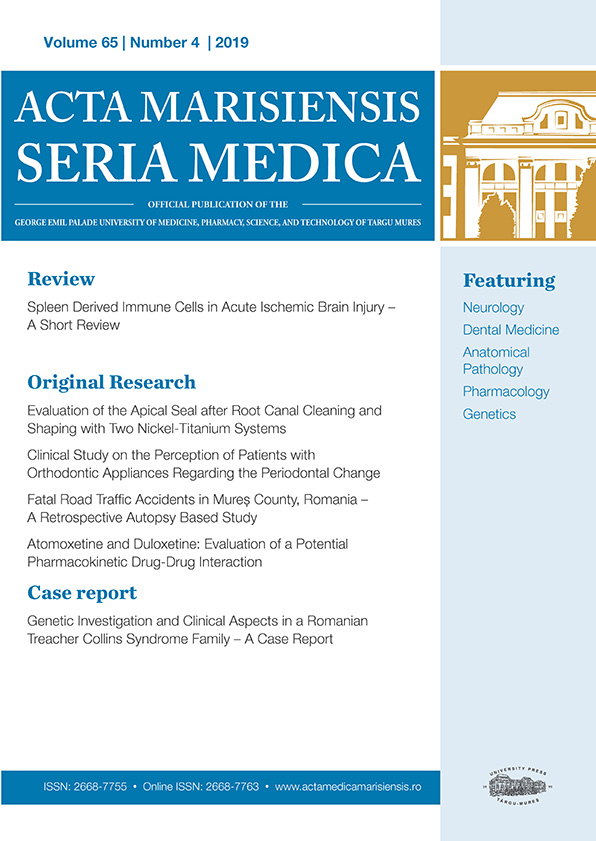Evaluation of arterial stiffness in systolic heart failure
DOI:
https://doi.org/10.2478/amma-2021-0009Keywords:
systolic heart failure; arterial stiffness; pulse wave velocityAbstract
Objective. Micro- and macrovascular changes can occur in heart failure, and could influence its prognosis and management. In a prospective study, we proposed the evaluation of arterial stiffness (macrovascular function) and its correlations in patients with systolic heart failure.
Methods. 40 patients (32 men, 8 women, mean age 63±2.9 years), with hemodynamically stable systolic heart failure were enrolled in the study. In every patient, beyond routine explorations (ECG, cardiac and carotid ultrasound, laboratory measurements), arterial stiffness was assessed by measuring pulse wave velocity (PWV). The correlations of PWV with clinical and echocardiographic characteristics were studied using t-test and chi-square test (p<0.05 being considered for statistical significance).
Results. The average PWV was 8.55±2.2 m/s, and 16 patients had increased PWV (>10 m/s). We found significantly higher PWV values in patients older than 65 years (p<0.001), in patients with eGFR <60 ml/min/1.73 m2 (p<0.001), hypertension (p=0.006), and increased (>1 mm) carotid intima-media thickness (p=0.016). PWV was found to be significantly lower when left ventricular ejection fraction (EF) was <30% (p=0.049) Furthermore, the presence of an increased PWV was correlated significantly with age (p<0.001), and (with borderline significance) with eGFR <60 ml/min/1.73 m2 and, inversely, with EF<30%.
Conclusions. Increased arterial stiffness reflected by high PWV is frequently present in patients with systolic heart failure, and is mainly correlated with general risk factors of arterial involvement. Low EF, due to low stroke volume and decreased systolic arterial wall tension can influence the values and the interpretation of PWV.
Downloads
Published
How to Cite
Issue
Section
License
Acta Marisiensis Seria Medica provides immediate open access to its content under the Creative Commons BY 4.0 license.









